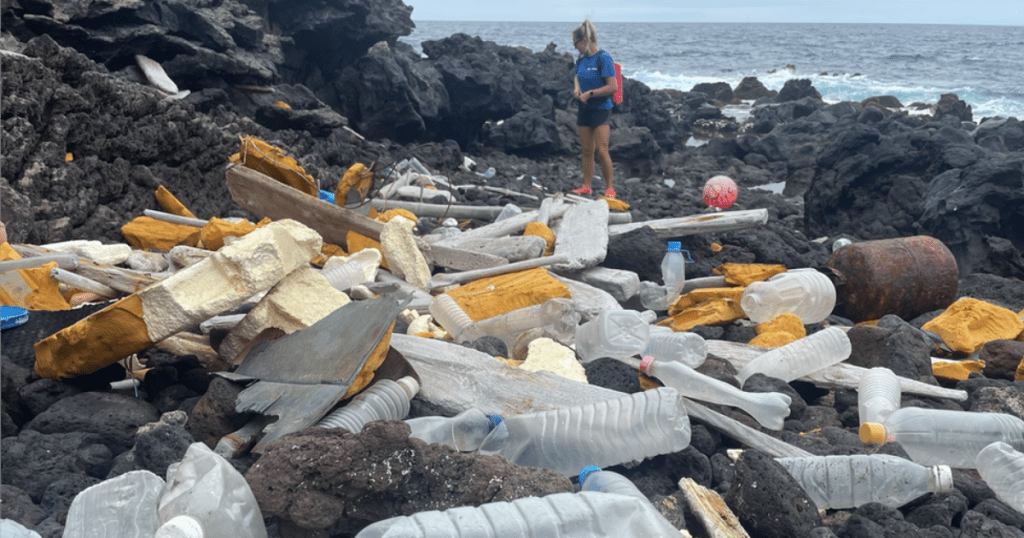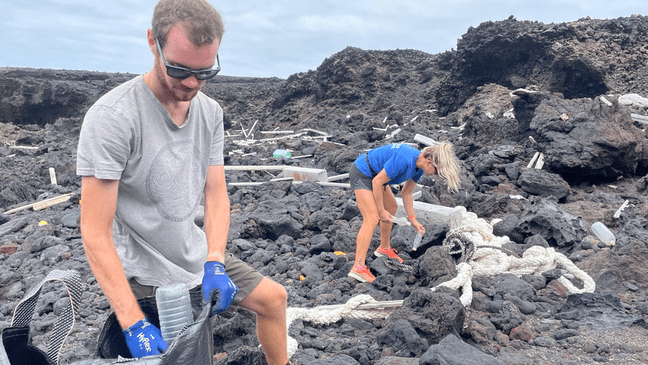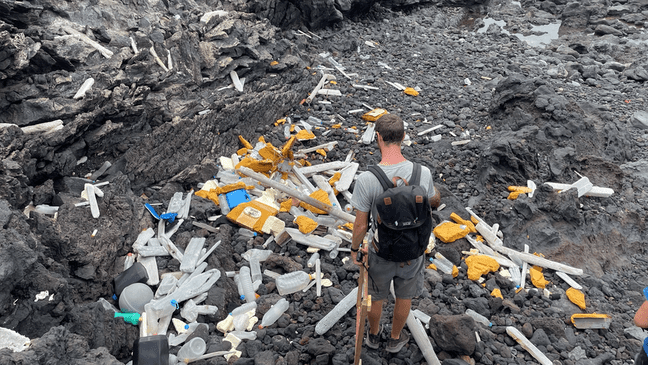Environmentalists say a wave of plastic debris from around the world has washed up on Ascension Island.
November 21
2022
– 08:01 am
(updated at 08:46)
Thousands of pieces of plastic from around the world are polluting the coast of a remote island in the South Atlantic, according to environmental experts and researchers.
Activists say the waste found on the southwest coast of Ascension Island came from countries including China, Japan and South Africa.
The Zoological Society of London (ZSL) team of researchers and activists spent five weeks assessing the extent of contamination at the site.
They said more than 900 species of marine organisms are threatened by pollution.
Ascension Island has a variety of native species and is affected by plastic pollution. This is the case of the wild crab, frigate bird, and many species of sharks, turtles, fish, and birds.
The remote island, which belongs to the United Kingdom, has been the target of several biodiversity conservation projects.
It’s heartbreaking,” ZSL marine biologist Fiona Llewellyn told the BBC. She says big corporations and governments need to take responsibility for the pollution they cause.
Llewellyn and his team found more than 7,000 pieces of plastic during their expedition.
The tiny island, with a population of just 800 people, is worried about pollution. Only a small amount of the plastic on its coast comes from the island itself. Llewellyn says, “It’s easy to see that most of it is coming from somewhere else.”
Animals swallow and become entangled in the plastic, which can cause damage. There are growing concerns about microplastics entering the food chain.
The most common types of plastic on the island are bottles, broken pieces of hard plastic, fishing gear, and cigarette butts.
A lot of rubbish ends up stuck on cliffs that are difficult to access and dangerous. “It was really difficult to get off the rocks to get to that shoreline and count all the plastic there,” she says.
ZSL’s conservation team is working with the Government of Ascension Island, the St Helena National Trust, the Government of St Helena, the University of Exeter and Nelson Mandela University in South Africa in an effort to tackle plastic pollution.
The overall project will last for three years and will consist of monitoring water currents and movement, identifying plastic bottles, assessing their expiration and production dates, and understanding when and where they may have entered the water.
– This text was published in https://www.bbc.com/portuguese/internacional-63659503
🇧🇷The best content in your email for free. Choose your favorite Terra newsletter. click here!



![[VÍDEO] Elton John’s final show in the UK has the crowd moving](https://www.lodivalleynews.com/wp-content/uploads/2023/06/Elton-John-1-690x600.jpg)





More Stories
A South African YouTuber is bitten by a green mamba and dies after spending a month in a coma
A reptile expert dies after a snake bite
Maduro recalls his ambassador to Brazil in a move to disavow him and expand the crisis